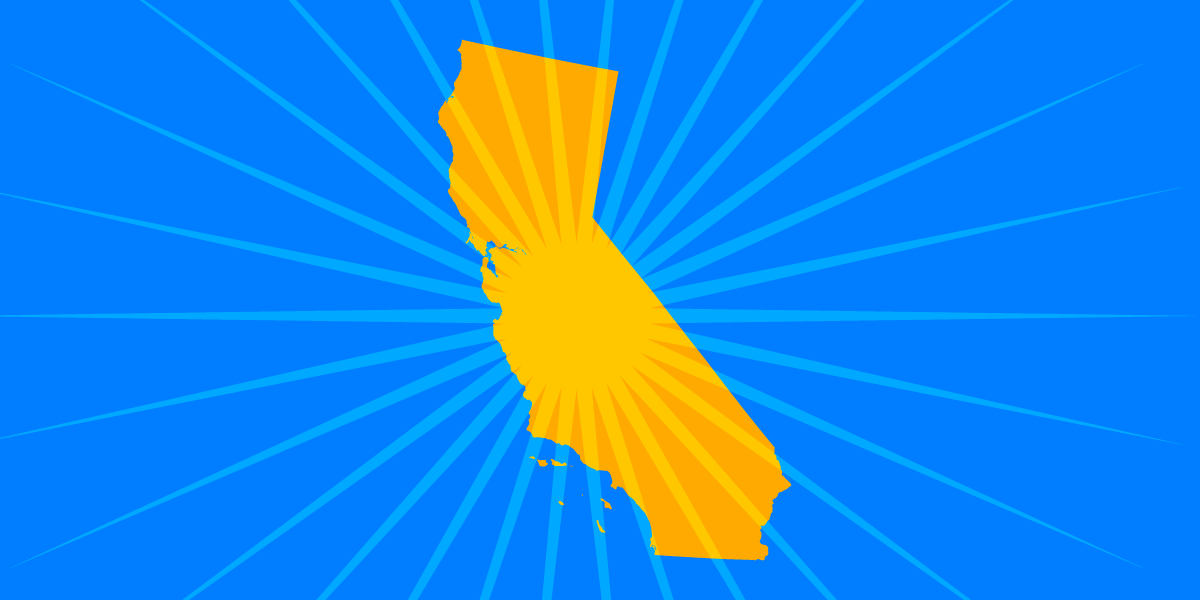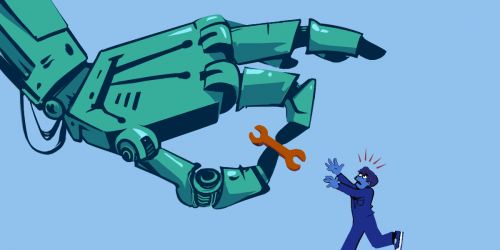More than a million people in California's rural regions and neglected low-income neighborhoods lack broadband access to handle the social distancing needs of COVID-19 and state law prevents the government from financing an upgrade for them. In response, Senator Lena Gonazalez introduced S.B. 1130 to amend the state’s limited Internet access efforts to become a full-fledged universal high-speed broadband infrastructure program. The legislation would end the state’s legal presumption that 1990s era DSL Internet service (6 mbps download by 1 mbps upload - i.e., not broadband) is sufficient to keep pace with people’s Internet use today. Instead, if would establish a modern broadband standard of 25 mbps/25 mbps. It would also further require that taxpayer-funded projects need to be future-proofed in order to permanently end the digital divide, and be offered under an open-access model. These are all laudable goals that will help Californians lack broadband access and EFF is a sponsor of the legislation. Yet California cable companies have said they oppose the idea that the state government should build infrastructure in areas that currently do not have it— despite the desperate need felt by many under the current circumstances prompted by the response to COVID-19. Here’s why their arguments don’t hold water.
Tell your lawmakers All Californians Deserve High-Speed Broadband Access
A Universal High-Speed Broadband Access Policy Requires an All of the Above Approach to the Infrastructure
The Internet is a series of networks that interconnect all of us, much like our roads. Yet, in many parts of the state, the broadband “road” just does not exist. In order to fully reach universal access, we are going to need greater involvement by parts of the state, and introduce more options beyond the traditional handful of private actors that have failed to build to everyone. California began to chart that course with changes in law the state made in 2018 with A.B. 1999, which EFF supported, and allowed local community ownership of broadband networks funded by public money. S.B. 1130 would bring the spending power of the government to the effort.
It’s important to involve the public sector to solve the issue of how to provide universal high-speed access because the status quo has failed us. In fact, it’s absolutely necessary to end the digital divide because private interests alone have created the divide in the first place. The short-term focus on profits contradict the long term investments needed to build universal fiber and all of the major publicly traded ISPs suffer from this short termism. This is why we are dealing with the bankrupcy of Frontier, which revealed in its own filings that it had 3 million DSL customers that could have been profitably upgraded to fiber if the company approached investments with a ten-year timeline in mind. In fact, many people can get fiber to the home at an affordable price, as long as those investing in that infrastructure can be patient when it comes to recovering costs. But efforts that might take ten years or more to finance will find fewer and fewer private businesses willing to shoulder that challenge. That means the public sector must step up to fill the void and local communities will need to build up their own direct ability to provide universal access to broadband. If we are serious about ending the digital divide, we must pass S.B. 1130 to help expand their financial options.
Cable Companies Fundamentally Fear Local Governments’ Developing Expertise Because People Might Want to Leave Cable
A fundamental question Sacramento should be asking the cable industry is why does it oppose legislation that does not finance broadband in areas where cable companies have already deployed high-speed access. Afterall, S.B, 1130’s 25 mbps/25 mbps standard would fall below any market where companies like Comcast and Charter have deployed hybrid fiber/cable infrastructure. In other words, the state’s investments wouldn’t be financing networks in their backyards. According to the cable industry’s national association, 80% of Americans had access to high-speed cable systems as of 2019, and even isolated areas where cable companies haven’t upgraded would benefit from this kind of buildout. That is because fiber vastly outperforms cable networks and, under S.B. 1130’s open access requirements, cable companies would be allowed to use the fiber capacity to sell service. So what is going on here?
The answer is cable companies fear that local governments will build their own independent expertise to provide fiber services. And, they also fear that once local governments start building in the areas that lack broadband access, they will eventually expand to areas to compete with cable. That’s the story in Utah right now, where a multi-city effort to build universal open access fiber is so successful that subscriber fees are financing future expansions with no new cost burden on taxpayers. This makes sense because broadband is an essential service everyone needs—so demand is sky-high—and the prices cable high-speed monopolies charge in markets that lack fiber are 200% to 300% above the competitive rates for broadband service. Consumers in almost all of these major cable monopoly markets are begging for a fiber alternative that can be completely financed by local residents' monthly bills that are lower than their cable bill. As long as this expertise isn’t developed and cultivated, there is no looming danger to the monopolists’ stranglehold.
It is a False Choice to Put Rural Californians Over Low-Income Californians
One of the criticisms the cable industry has against S.B. 1130’s universal approach is that the bill intends to build out open access high-capacity networks in low-income urban areas. The bill’s dual emphasis on high-poverty areas and rural markets is because government data shows both of these areas lack high-speed broadband access. Even major cities like San Francisco that boost several gigabit options have close to 50,000 people stuck with dialup Internet access. Rather than just solve this issue themselves by building out to those communities (as opposed to redlining them), the industry argues that the state must choose one set of Californians that lack broadband access over another.
While it is true that solving the urban lack of broadband access issue will be fundamentally different than solving it in rural areas, as the areas without access are made up of pockets of low-income neighborhoods instead of whole communities. Resolving this issue likely requires cities to finance the infrastructure in the absence of mandatory build-out requirements on incumbents. In fact, even cities that have required mandatory build out to all areas like New York City, still suffer from an urban/urban divide premised on income due to intentional foot dragging by their incumbent ISPs. In this way, private ISPs have already proven that they will intentionally neglect these areas, and the needs of these people. They cannot assert that areas they have chosen to neglect should be kept off the table for the public sector to resolve.
As such, California’s legislators should reject such narrow thinking. All people that lack high-speed access are suffering equally today under COVID-19’s requirements for social distancing, remote education, and remote work. All Californians deserve access to the high-speed broadband to move into the future.
Tell your lawmakers All Californians Deserve High-Speed Broadband Access












